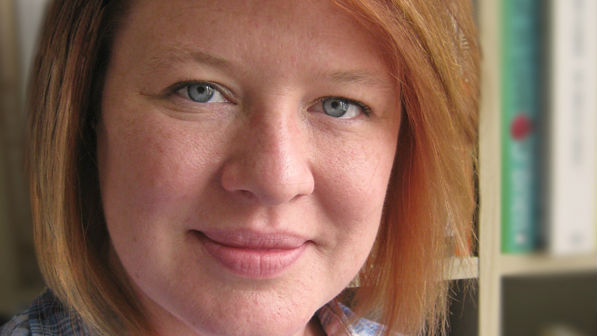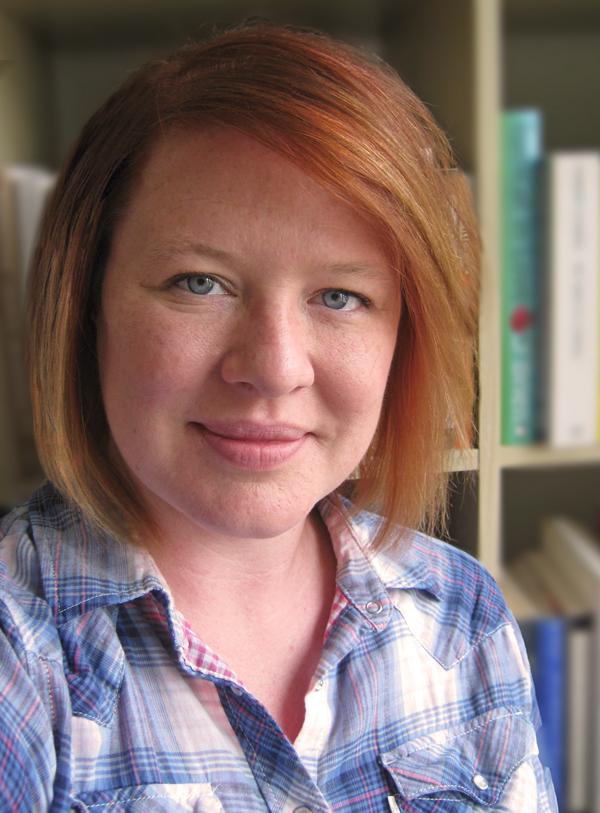

Writing can be cathartic for Denver author Wendy J. Fox. She says it's how she works through difficult or painful experiences. Though she doesn't journal or write essays. Fox channels personal tragedy as inspiration for her fiction.
She led a workshop on the topic at Lit Fest, which runs through June 17 at Lighthouse Writers Workshop in Denver. The two-week event is full of how tos and panels for those interested in literature.
Fox spoke with Colorado Matters host Ryan Warner.
Related:
Read an excerpt from Fox's novel "The Pull of It," due out in September:
CHAPTER ONE The New Year’s after I lost my job in the registrar’s office at the university, my husband, Julian, and I got a sitter for our seven-year- old daughter, even though I always worried about holiday babysitters: What kind of teenager doesn’t have anywhere to be on New Year’s, and do I want to leave my kid with them? Julian, ever practical, told me to stop wondering so much about other people’s lives. Truthfully, this did nothing for me: What kind of person doesn’t wonder about other people’s lives, and do I want to be married to him? But I said, “You’re probably right.” I was thirty-five years old and had already been unemployed since the summer, and it was much scarier than I had thought it would be when layoffs were being discussed. All we’d hear in the Seattle news was that the dot-com bubble was bursting, bursting—pop!—but I hadn’t thought how it would impact the private institution I worked for. Sure enough though, parents started pulling their students out and opting for lower state tuition. When I packed up my office, I thought of how people sometimes described the Internet as the web, and I thought of myself unwittingly caught in it, like when I’d come out of the basement with a face full of spider silk. Even if it had not been spun for me, there it was, tangled around my eyelashes. For the party that New Year’s, we got dressed up in the way that we did then—in what I categorized as a married way, but it was really just our particular married way. Julian wore clean khakis and a pressed shirt; I made an effort by putting on a bra that wasn’t ripped at the seams and a reasonable top over it with a skirt and a pair of beat up, low heels, plus I used mascara. And then we spent the evening at an averagely boring party, where I stared into what seemed like an always empty glass of gin and tonic, angrily thinking, Who’s being stingy with the damn limes? Julian was mingling and some of the other ladies were waxing on about how nice it was to have an evening without their children, while I wondered about our daughter and figured she was just as bored as I was, with the no-social- life babysitter. I wished we were curled on the sofa together, with me braiding her hair, or painting each other’s nails—we would ignore Julian when he complained about the stink of the polish, when he talked about the chemicals—while doing our own silly countdown as the pre-recorded Times Square ball dropped. She loved the sparkle of it, I knew. Without my husband directly in tow, I tried to mingle too, but I didn’t like these types of parties where everyone was so deeply coupled that as the night wore on, the men separated into one room to play pool, if someone had a table, or into the garage to smoke cigars or pot, and the women kicked off their shoes and gathered in the living room to complain about their feet and their husbands, but I followed them anyway and found a seat on an armchair. This was when my drink started to feel even emptier, and the crusty, non-abundant limes even drier. While the men separated from the women, like curd from whey, I sat on the side and let the host’s dog lie down on the floor and drool across the tips of my toes that peeked out from the worn leather of my pumps. It didn’t bother me and the dog seemed happy, and I thought if I could just stay still for a few minutes I would feel better. That the room would slow. That I would stop obsessing over what Anastasia, our daughter, was or was not doing. There was a lull in the chatter, and someone finally said something about the dog, how he was gnawing around at my feet. I tried to wave her off, but she wouldn’t listen, insisting my shoes were being ruined. They were already ruined, honey, I wanted to say, but I didn’t. I got up from my chair and took the dog by the collar. I figured she must have a leash somewhere, but I didn’t look for it. I refreshed my cocktail, found my coat, and when I was done I asked the dog to come with me by patting my skirt, crumpled and hairy, and she followed. Outside, it was cold, but not impossible. It was hardly ever very cold in Seattle, only damp, though sometimes the damp made me feel like someone had replaced my bone marrow with soggy lichens and soft moss. I wished for Julian to join the dog and me and say it was time to go home. I wished to bring the friendly mutt in tow and save her for Anastasia, who would wake in the morning, groggy and incredulous and thrilled. Naming would commence: Buttons, Sugarcane, Rochelle, Fur Face. It was quiet outside, in a suburban neighbor-hood. I could hear some hooting from the open window in the basement where the men had gathered, and could see the women’s faces past the open drapes in the living room. It didn’t look like they missed me. I leaned against a stone wall in the host’s garden. There was some kind of slick fungus that I knew would leave a streak of green down my backside, but I didn’t care. There was a low fog, but it wasn’t actually raining, and that was a nice change for winter. I was just outside the front door for what seemed like a long time. My drink was empty, but the ice was melting slowly. I started to hear the click of the latch on the front door opening and closing. People were leaving. The women had vacated the living room and the basement seemed empty. I watched for Julian to come through the door, and when he finally did, I stepped around a bush that had been shielding me and joined him. “There you are,” he said. “I looked everywhere.” “I was here the whole time,” I said. “Put that glass back in the kitchen. Don’t steal their crystal.” I ran my finger around the rim to check, and the glass gave a low pitch, a little flat sounding from my other hand’s grip, dampening the vibration. “Laura,” my husband said. “Please.” I went to the kitchen. I washed the glass, fingerprinted like a bad crime scene. The host told me to leave it, but I kept washing, slowly, so I would not break anything. The warm water felt good on my fingertips, and the detergent smelled of citrus and mint. I rinsed the glass for a long time before I placed it on the drain board. When we left, we did not take the dog, and we did not take any leftovers. From THE PULL OF IT by Wendy J. Fox. Available September 2016. Copyright © 2016 by Wendy J. Fox. Reprinted by permission of Underground Voices. |









